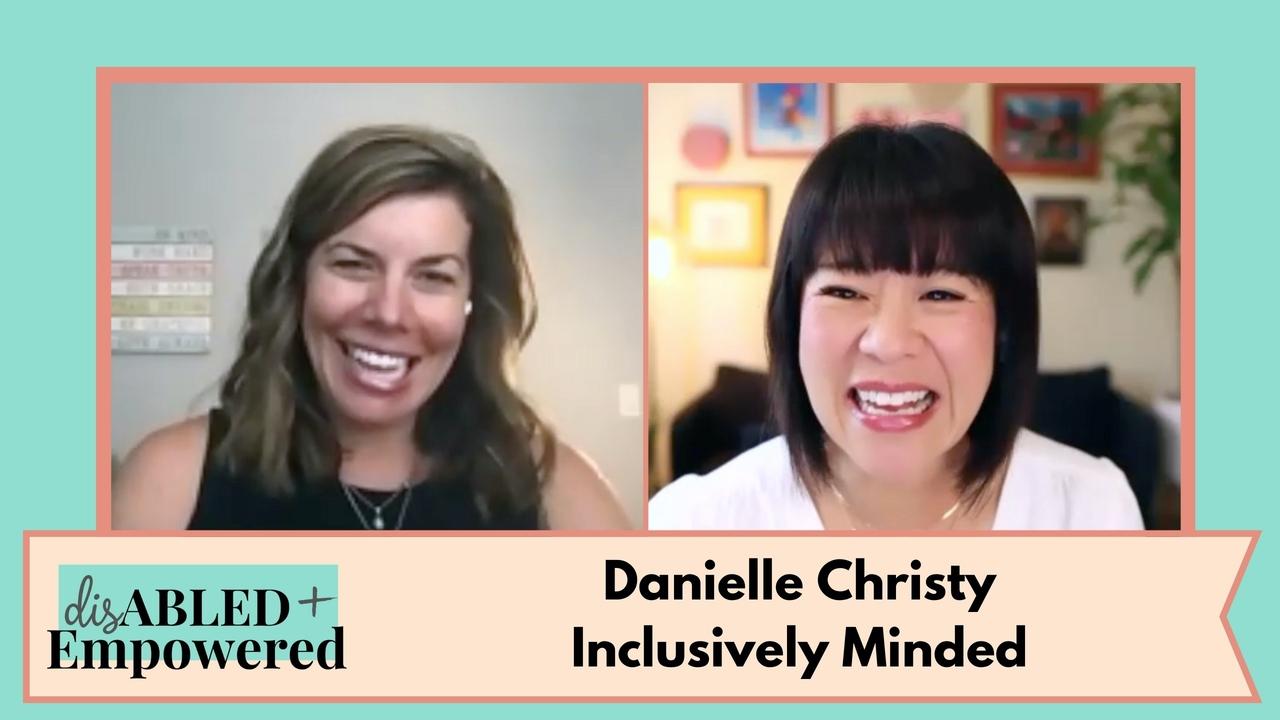What is Inclusion, Why it's Important, and How to Achieve it? An Interview with Danielle Christy

What is Inclusion?
I had the distinct pleasure of spending some quality time with Danielle Christy, a Licensed Educational Psychologist (LEP) with over 15 years in the public, non-public, charter, and contained school settings. Her specialty? Inclusion.
Across the many years of my practice as a Clinical Psychologist with a niche in neurodevelopmental disabilities, I hear the word "inclusion" tossed about. Even though I've spent a lot of my professional career in a classroom, I'm not an educator, so spending time with Danielle, who is an expert on inclusion, was enlightening and it was high time that I did a deeper dive.
According to Danielle, Inclusion is made up of some key components. First and foremost, presume competence. No matter the disability, socio-economic status, or race, believe in the potential of every child, every student...and well, every person. Second, all students should have equal access to the curriculum and supports to access curriculums. Third, equip every teacher with the ability to teach every kid.
Silos are good for grain, not education
Danielle encourages all parts of the educational system to collaborate, interact, and work together. This really spoke to me and is one of the main drivers behind my YouTube channel (enter shameless plug...if you haven't checked it out, what are you waiting for?). Starting with the school's principal, Danielle is a strong believer in the efficacy of integrated teams with leaders who wholeheartedly believe in inclusion and actively support it with action and resources. When everyone believes in the power of inclusion, a culture of belonging, acceptance, and growth is fostered.
Universal Design
In Danielle's words, "Every special education student is a general education student first." How do teachers, really our boots-on-the-ground experts of learning, offer a curriculum that can teach ANY student? Through the model of Universal Design for Learning (UDL). Borrowing from the universal design framework that architects use to create products that are accessible to people with a wide range of abilities and disabilities, UDL is a framework aimed at improving and optimizing learning for all people based on science. When teachers are supported to create lesson plans with UDL in mind, inclusion becomes a more realistic prospect for students who can benefit. Even with good intentions, the absence of the right frameworks, support, and resources, cannot make meaningful inclusion happen.
Different hats
In the past year, Danielle has ventured into private practice. She can help teams with promoting meaningful inclusion, she conducts relevant and productive independent educational evaluations (IEE), can serve as an advocate, and has found joy in helping kiddos with managing their anxiety through counseling. Danielle brings her over 15 years of professional experience from various school settings, which is infused and grounded by her favorite job...being a mother to two children, one with Fragile X and Autism Spectrum Disorder. So, she's got the professional and street cred.
Belief unlocks potential
Starting my YouTube channel has brought me into contact with so many brilliant professionals. I would've never met Danielle if it wasn't for my YouTube adventure and I'm thrilled that I got to meet her. Her belief in her children, her clients, and the systems she supports is like a big warm hug (something I totally miss right now...thanks, COVID). Big thanks to Danielle for spending time with me!
To listen to my interview with Danielle, check out the video:
To find out more about Danielle or to contact her, check out her website: Inclusively Minded.
You can also find her on Twitter @inclusivepsych or Instagram @inclusivelyminded.
For a copy of the transcript of this interview, click here.
